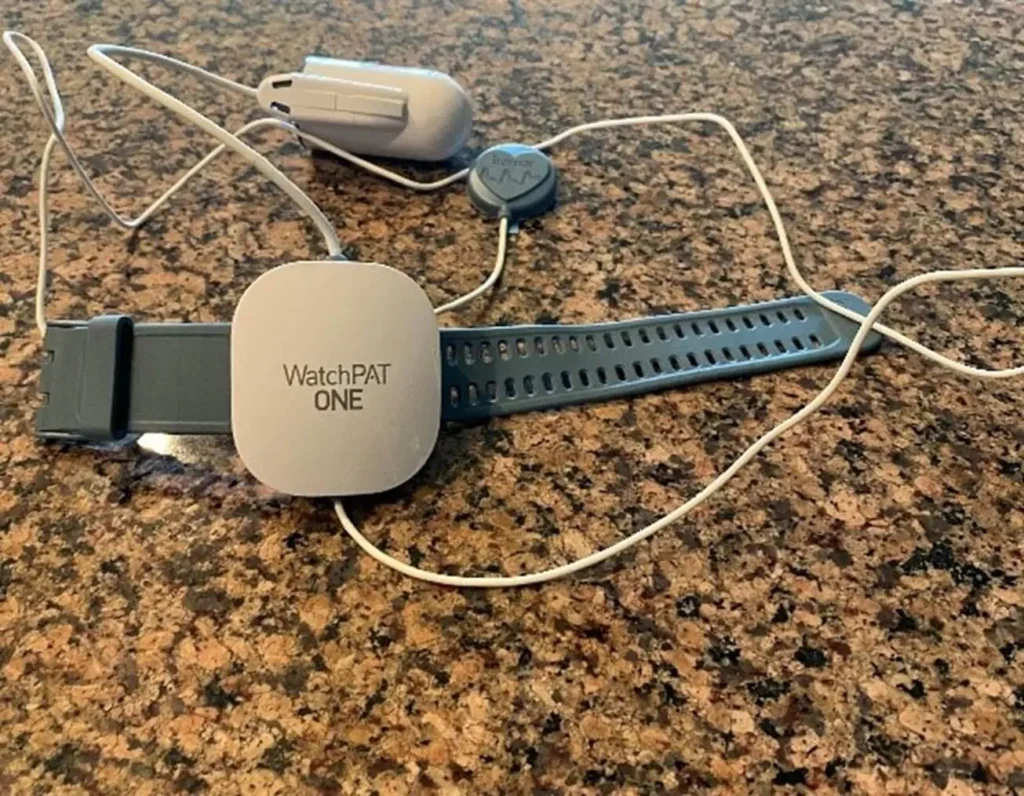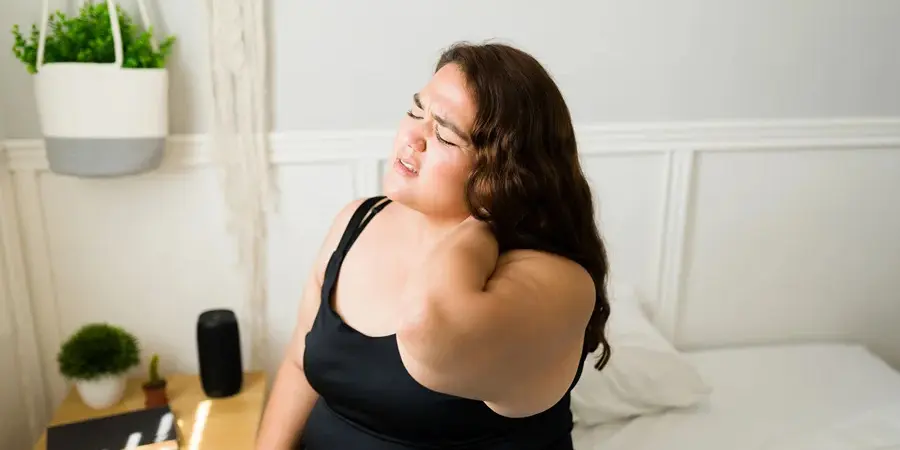Can the way you sleep lead to weight gain?
Millions of Americans would like to lose weight, and there are tried and true methods that work to some degree but are not so good for many people.
If we could find a way to not gain extra weight in the first place, problem solved, right?
There are some obvious reasons for weight gain. These can include eating a typical American diet, lack of exercise, our microbiome (the bacteria in our gut), stress, and our abundance economy.
But what about sleep?
Sleep duration is a significant predictor of future weight gain. Numerous studies have shown that 7-8 hours of sleep a night is associated with health and weight maintenance vs shorter sleep duration.
In a study of 68,183 women followed for 16 years, they found a clear association between duration of sleep and future weight gain. Women who slept on average less than 5 hours a night were 50% more likely to gain 50 pounds or more over the next 16 years than women who slept 7 hours or more a night.
There was a step-wise risk of weight gain and sleep. Sleeping less than 5 hours a night was associated with the most weight gain, sleeping 5-7 hours a night there was less weight gain, and sleeping 7 hours or more a night was associated with the least weight gain and the lowest risk of developing obesity.
What causes poor sleep?
There are several possible answers, but obstructive sleep apnea is a very common cause of poor sleep. This is a condition that affects about a quarter of women over 45 where the sleep is interrupted but limited airflow (an extension of snoring even in someone who doesn’t snore audibly). Individuals who have both shore sleep and sleep apnea are 4 times as likely to have visceral obesity which is the most unhealthy type of weight gain (belly fat).
What can you do if your sleep is less than ideal?
For starters, measure your sleep. The Apple Watch can measure your sleep. I use the Oura ring to track my sleep. These devices (and many others) also tell you the quality and efficiency of sleep as measured by stages of sleep.
If your sleep is less than ideal, or you want to know if you are at risk for health problems associated with obstructive sleep apnea the next step is an in-home sleep study test.
I like the WatchPAT device which is a single-use wearable device that measures not only the quality and efficiency of your sleep but also tests you for any sleep apnea and grades it. It is inexpensive, and easy to use and the results are available the next morning.

Sleep apnea can be reversed.
The traditional treatments for sleep apnea had been using a CPAP machine which is a device that you wear at night that forces air into your lungs.
We offer the NightLase® and ApneaLase™ treatment that has been effective in reducing or eliminating clinical sleep apnea after 3 treatments done 2 weeks apart. ApneaLase™ is done with an FDA-cleared device that has clearance for treating the tissues in the back of the throat that cause sleep apnea.
As an added benefit, snoring is also reduced simultaneously with the NightLase® procedure which is part of the ApneaLase™ protocol.
If you would like to test your sleep, the WatchPAT is available at Allure Medical (Michigan locations only as of the date of this article).
References
Sleep disturbances, body fat distribution, food intake, and/or energy expenditure: pathophysiological aspects. Horm Mol Biol Clin Investig. 2014 January ; 17(1): 29–37. Marie-Pierre St-OngeAssociation between Reduced Sleep and Weight Gain in Women. Am J Epidemiol. 2006 November 15; 164(10): 947–954. Sanjay R. Patel et alShort Sleep Duration Combined with Obstructive Sleep Apnea is Associated with Visceral Obesity in Korean Adults. SLEEP, Vol. 36, No. 5, 2013. Nam Hoon Kim, et al.










